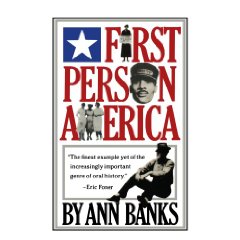I’ve been writing about sharing stories as a way of understanding and coping with the current economic crisis.
Ann Banks understands the value of stories during these tough time. In an article in Newsweek, Banks notes that she was raised on Depression stories. “Hearing them again and again,” she writes, “I became fascinated by the role that stories play during hard times — the way they seem to strengthen people, offering a bulwark against loneliness and feelings of personal failure.”
Her fascination led Banks to do something remarkable. In a dusty Library  of Congress storage room, she spent a year sifting through 150,000 pages containing “thousands of interviews with ordinary Americans telling of how they survived the Great Depression.”
of Congress storage room, she spent a year sifting through 150,000 pages containing “thousands of interviews with ordinary Americans telling of how they survived the Great Depression.”
Banks explains:
The stories were collected in the late 1930s by the Federal Writers’ Project, a unit of the Works Progress Administration that employed out-of-work writers. But before the intended series of anthologies could be published, the Writers’ Project was Red-baited out of existence. The oral histories — of tobacco farmers, smugglers, midwives, jazz musicians, oil roustabouts and others — ended up crammed in rickety filing cabinets in a remote storage room in the library stacks.
She goes on to discuss how she fell in love with many of these stories.
Banks collected the stories and published them in the book First-Person America.
And she is convinced that we should be doing the same kind of storytelling in the current climate: “Listening to each other’s stories may grant us a sense of common purpose that money can’t buy.”
